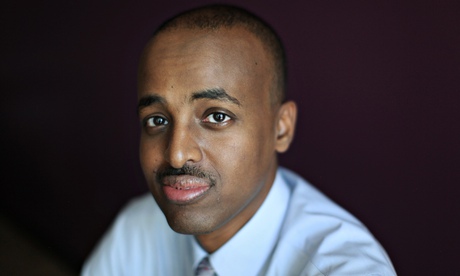
Thursday August 21, 2014

Mohamed Ali, director of the Iftiin Foundation, explains why Somalia's employment situation borders on 'catastrophic'
How would you describe the issue of youth unemployment in the developing world?
We are seeing an alarming form of youth marginalisation and exclusion in the economic growth of developing countries across the world. 90myoung people around the world are unemployed – this number rises to 300m when you consider those that are under-unemployed. Those who do get work often end up in highly exploitative jobs in the informal sector.
In Somalia, almost seven out of 10 young people in the country are unemployed. When you consider that over 70% of the population is under 35, the youth unemployment situation in Somalia borders on catastrophic. As a result most young people want to leave the country and hundreds die each year trying to cross the Mediterranean sea to enter Italy illegally in search of jobs in Europe. And many have become vulnerable to exploitation by terrorist organisations and piracy groups. The situation is doubly worse for young women.
What do you think are the main causes?
The speed and volume in which youth are entering the labour market is proceeding at a rate that exceeds the ability of these countries to create jobs. Consider Africa where over 70% of the continent's population is under the age of 30 and in the next 40 years, one out of three of the world's population aged 15-24 will live in Africa. While this demographic change is transforming the social and economic landscape in the developing world, economic and development policies do not adequately reflect the kind of changes demanded by this shift.What do you see as the long-term consequences?
My work has focused on the nexus between development and peace when it comes to youth. When young men and women are unable to obtain productive employment they are forced to live on the margins of society. From here they often fall into a cycle of poverty and disenfranchisement that leaves them vulnerable to violence, crime and drug trafficking. And where economic growth is not matched by an increase in economic opportunities for youth, risks of political instability and social unrest increase.
Driven by poverty and unemployment, youth in Somalia turned to piracy as a solution, which in 2012 cost the global economy over $6bn. It is has become abundantly clear that in an increasingly globalised world youth unemployment will have a global impact.
What are the solutions to the crisis?
First, capitalise on the ingenuity of the private sector. In fragile communities like Somalia and other least developed countries, where often the private sector provides as much as 90% of employment, entrepreneurs are the key drivers of development. Young people themselves do not have to wait for top down institutional responses to their problems, which will often never arrive – they can make an impact on their lives now by becoming entrepreneurs.
Second, education systems need to be strengthened to focus on skill development, innovation, and entrepreneurship. Entrepreneurship education, especially at an early stage, spurs innovation and prepares young people to leverage their skills to create the very jobs they need through self-employment.
Unfortunately youth employment in many developing countries has failed to be a policy focus. We need youth-centered policies that put employment generation for young people at their heart.